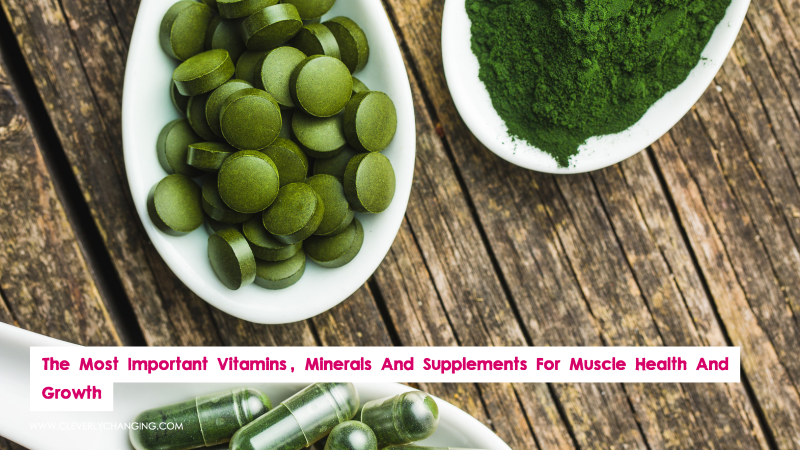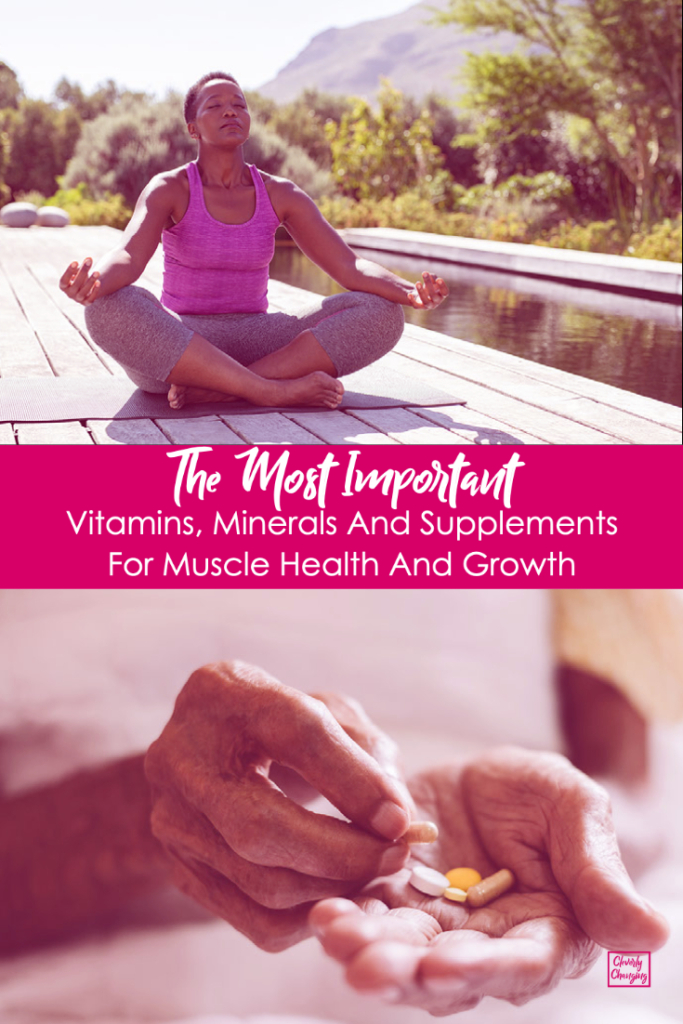When looking to improve your strength and muscle size through rigorous exercise, it’s important to remember to get the right nutrients into your systems to maximize those gains. There are many different types of supplements and minerals that you can add to your diet around your workout routines but figuring out the right thing for you may take some trial and error. To help you with your own research, we’ve put together a list of some of the most important vitamins, minerals and supplements that are used in the growth and maintenance of muscles.
Creatine
You may have heard of this one, especially when speaking to other gym-goers about their routines. This supplement is taken before hitting the gym and is used to give your body a boost. This boost comes in the form of added strength and energy for your muscles, providing you with the ability to perform much better, making your gym sessions last longer. These longer, more intense sessions will help you to get a much greater workout and so can help to improve the rate at which you hit your goals. Creatine is generally considered to be safe to take, however, it’s always a good idea to speak to your doctor before adding any supplement to your diet, just in case.
Beta-Alanine
This supplement is used for similar reasons to creatine, in that it can help to boost energy and reduce your fatigue. It’s usually taken as a regular, daily supplement however as opposed to being added to a pre-workout shake. Lower levels of tiredness and increases in workout performance have a positive impact on lean muscle gain, although it’s worth noting that there is still lots of research being done to figure out more about beta-alanine. This amino acid is also said to increase levels of the substance known as carnosine, which has many alleged properties like anti-aging and boosting the immune system.
Protein Powders
Making sure you’re getting enough protein in your diet is a major challenge, especially as you get bigger in regard to muscle mass. The bigger you get, the more protein you’ll need to grow even larger and that means eating more. This mentality tends to result in many gym buffs force-feeding themselves platefuls of chicken breasts, however, this is a rookie mistake. There is only so much protein our bodies can handle before it just gets wasted and surprisingly it isn’t a whole lot. However, to make sure we’re getting the most out of our protein intake, protein powders can be a great addition to your diet. These can be added to meals or turned into a protein shake for convenience.
Amino Acids
Branched-chain amino acids or BCAAs, which are found in protein sources like meat and eggs, can also be very useful in the development of muscle mass. Three different amino acids are part of this group known as BCAAs: valine, leucine, and isoleucine. Valine contributes to the growth and repair of muscles and also has a hand in giving you energy. When it comes to the other two, there is often confusion as to their roles and which is better. Weighing up the benefits of leucine vs isoleucine but they both share similarities with each other and valine. It’s important to note that leucine works much better than the others for protein synthesis, however, whereas isoleucine actually provides you with more energy and also helps with general muscle and blood maintenance too.
Omega 3
This fatty acid, while not directly involved in the muscle growth process, actually helps to get our cells ready for the synthesis of protein. Omega 3s are obtained from oily fish like salmon and tuna and are an essential part of our diets. Not only does it help prepare our muscles for growth, but it also helps to improve the recovery process, allowing us to get back to the gym more often. There are a few other benefits to these fatty acids too, including an improvement to your reaction times, increased endurance, and performance, and they also help you to burn off body fat too.
Vitamin D
High levels of vitamin D can be incredibly beneficial to you and your workout goals. It’s said that they can increase the strength of our muscles and also speed up injury recovery. Not only that but vitamin D is also great for maintaining good mental health. According to research, this vitamin is said to lessen the impact of depression and helps to regulate our mood. Poor mood and a lack of motivation caused by mental health problems can reduce our desire to exercise which can then exacerbate these feelings too, as well as impact our physique too. Oily fish and eggs are a great source of vitamin D, and so is the sun. The cholesterol in our bodies create vitamin D when sunlight hits our skin, so make sure you get outside often.
Vitamin A
While this vitamin is regularly overlooked, it actually is incredibly important. Vitamin A is an essential part of our diets and plays a part in protein synthesis like amino acids. This process is basically the creation of protein molecules that are then absorbed into the body to be used for muscle growth and other important functions that require this nutrient. This vitamin also helps in the creation of testosterone in our bodies. This hormone helps to create muscle and a lack of testosterone is often linked with muscle loss and other issues. It’s worthwhile adding vitamin A supplements to your diet where possible or start eating more foods containing this useful vitamin such as dairy, liver, and fish. Although you can also get provitamin A from a plant-based diet too, including things like carrots and broccoli.
Calcium
One mineral that is especially good for the maintenance of our muscles is calcium. This not only helps to strengthen your bones, but it’s also a key component in muscle contraction. Low levels of calcium, which is referred to as hypocalcaemia, can cause cramping in the muscles as well as twitching and spasms. Maintain good levels of calcium from dairy products, beans, and leafy greens like kale. As well as this, there are lots of foods out there that are fortified with calcium and other minerals and vitamins too.



